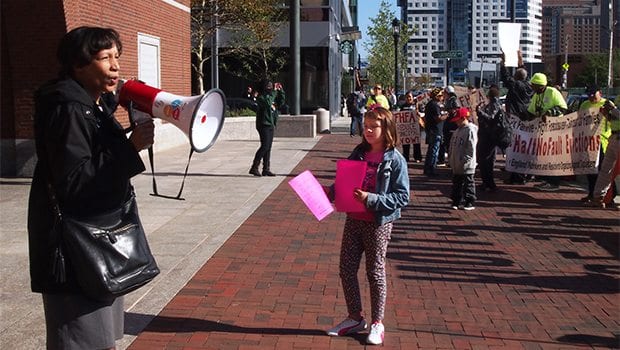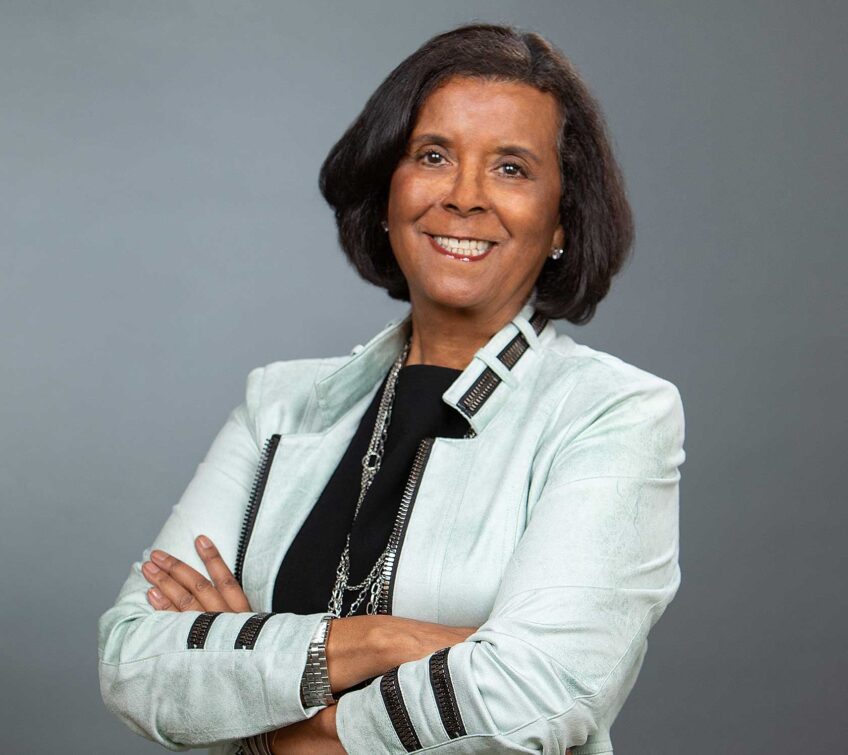
Lavette Sealls would like to re-purchase the Hyde Park condo she lost to foreclosure in 2010, and a nonprofit lender is ready to lend her the money.
“My son and I applied for a loan through Boston Community Capital to buy back to the property,” she said.
But Fannie Mae hasn’t responded.
“We haven’t heard anything,” Sealls commented. “No response. Nothing.”
Sealls may have to wait a while for that response. The Federal National Mortgage Association — known as Fannie Mae, which holds her mortgage, has a policy of not selling foreclosed properties to former owners.
Last week, Sealls joined activists from City Life/Vida Urbana for a protest in front of the John Joseph Moakley Federal Court House in support of a lawsuit filed by Massachusetts Attorney General Martha Coakley for violating the state’s foreclosure prevention law.
The law, passed by the Legislature in 2012, bars banks from discriminating against former owners or entities selling to former owners when auctioning or selling foreclosed homes.
Coakley’s office sued Fannie Mae and Freddie Mac in June of this year. At last week’s hearing, attorneys for the lenders filed a motion to dismiss the case, a common tactic in lawsuits.
“It makes no sense for our federal government to stand in the way of this work to help struggling families stay in their homes, and it is illegal for Fannie and Freddie to do this in Massachusetts,” Coakley said in a press statement. “For too long, Fannie and Freddie have been roadblocks to progress in addressing this foreclosure crisis, and I urge them to immediately reverse their policy on this common-sense program.”
Founded in 1938 as part of Franklin Delano Roosevelt’s New Deal program, Fannie Mae was created to stimulate the housing market in the United States. The organization buys mortgages from banks and mortgage companies, freeing those entities up to write more mortgages. The Federal Home Loan Mortgage Corporation — known as Freddie Mac — was founded in 1971 to compete with Fannie Mae and further stimulate the home loan market.
During the 2008 subprime mortgage crisis, and the resulting great recession, as thousands of Massachusetts residents lost their homes to foreclosure, nonprofits like Boston Community Capital began looking at ways to help former homeowners buy back homes they lost to foreclosure.
Typically, the nonprofits will buy the foreclosed properties at auction, then provide the former owners with a loan to re-purchase the home.
But Fannie Mae and Freddie Mac have steadfastly refused to sell homes to former owners as a matter of policy.
“Former homeowners who are foreclosed upon must vacate the property unless they are able to satisfy the full debt of the foreclosed mortgage, including interest and the costs of pursuing the foreclosure,” a spokeswoman for Fannie Mae told the Banner earlier this year.
While Fannie Mae will not sell to former owners, the mortgage companies are selling to speculators, who housing activists say are driving up rents and selling residential buildings for high profits.
“This is taxpayer money going to a policy that is at its core about breaking up communities,” said Lisa Owens Pinto, interim executive director of City Life/Vida Urbana. “Fannie Mae and Freddie Mac own half of all foreclosed properties in the country. If you want to see movement on this, they have to change their policy.”






